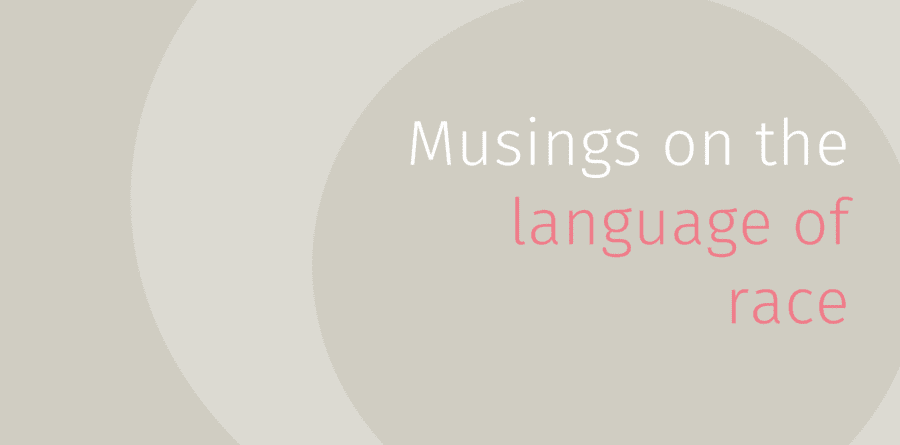Musings on the language of race
9/12/2021 - Abstract

There are many perspectives on the topic of race relations, racial disparity and thinking about how to close the race gap. The opinions expressed here belong solely to, Sue Liburd MBE DL (and Non Executive Director of ABSTRACT), and do not represent the views of Black Leaders CIC. These are some of her musings on the language of race.
Language continuously evolves. Each year the Oxford English Dictionary (OED) announces its list of new word entries and revisions. In September 2021 they added almost 1000 revisions and over 800 new entries. Words such as anti-vaxxer, climate crisis, extreme weather, and mass distinction joined the lexicon. You may be forgiven for not noticing that this year we also saw the addition of terms related to race. These include:
- Allyship, adj: The state or condition of being a person who supports the rights of a minority or marginalised group without being a member of it.
- Anti-black, adj.: Prejudiced, antagonistic, or discriminatory towards black people; expressing or characterised by racism of this type.
- Anti-blackness, n.: Prejudice, hostility, or antagonism towards, or discrimination against black people.
There is an ongoing challenge when it comes to tackling racial disparity in the UK, one of the many contributory factors is that our language relating to race changes so quickly. Sue thinks this is a good thing as it keeps the race conversation on the table and language needs to evolve in line with societal change. However, it does feels as though we are currently a little stuck. To BAME or not to BAME? Ethnic Minority or Minority Ethnic? People of colour or Coloured people? Which term should we use?
Any term used will have its challenges. The term ethnic minority is not always accurate as it depends on which country you travel to or work with in determining whether you are in the minority or majority. Social anthropologists argue the term, person of colour doesn’t account for the fact that everyone has skin colour. They argue that white people are coloured too, and globally white people are in the minority. In the 1950s the term Black was considered derogatory, however in the 1980s it gained popularity and had political currency. BAME has become problematic as it is overused and used inappropriately or as an insult. It is pronounced as a word and as a catch all term for a group of people with diverse ethnicities and cultures. Treating us all as a singular and homogenous identity, which we are not. Since these terms were introduced, the UK has become much more multicultural and ethnically diverse. So, what can we do when discussing race? Sue suggests that each and everyone of us can take small actions for example:
- Contest terminology that reproduces or perpetuates unequal power and racial inequality.
- Stop using generic labels as a substitute for directly addressing a specific racial or ethnic group. BAME, Person of colour, Ethnic minority are not adjectives describing an individual’s identity.
- Respect people’s differences and be courageous enough to allow people to self-describe rather than having to agree to a single term. Recognise, people have different preferences. When asked about her race or heritage, Sue describes herself as being, Black British of Caribbean descent and she is a racialised minority in the UK.
The language debate is ongoing, new descriptors will emerge. However, they must not detract from the important work taking place within organisations and institutions across the UK as they continue the journey to becoming more inclusive. It will always be important to understand the meanings behind the terms we use to address people and culture. Sue asserts, that like the Oxford English Dictionary, we all need to take responsibility to keep updating and refreshing our vocabulary.
ABSTRACT deliver learning and development programmes that promote inclusive leadership, career management for women and other underrepresented groups, and building modern-day businesses’ fit for today’s social objectives. Visit their website for more details.
All articles on this news site are submitted by registered contributors of EssexWire. Find out how to subscribe and submit your stories here »



